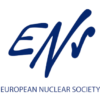Westinghouse Supports Slovakia’s Nuclear Fuel Supply Diversification
Westinghouse Electric Company (ENS Corporate Member) signed a long-term agreement with Slovenské elektrárne to license and supply VVER-440 fuel assemblies to its nuclear power plants in Bohunice and Mochovce, Slovakia.
According to IAEA PRIS, in 2022 more than 59% of the electricity produced in Slovakia was generated by nuclear power plants, almost 16 million MWh of electricity every year.
The agreement is considered crucial to support Slovakia’s energy security and diversification of nuclear fuel.
Securing another nuclear fuel supplier for our power plants is an important step in strengthening Slovakia’s energy security. Nuclear power plants represent an important pillar in our country’s energy mix.
said Branislav Strýček, general director of Slovenské elektrárne.
Last June, Slovenské elektrárne also extended its long-term partnership with Framatome (ENS Corporate Member), which supports the Slovak operator in several domains of expertise, including nuclear fuel, I&C, operations and maintenance.
Westinghouse, such as other ENS Corporate Members like Framatome, Urenco and ENUSA, is actively playing a key role in the diversification of nuclear fuel supply in several Eastern European countries. Alongside the cooperation with ENUSA on VVER-440 nuclear fuel fabrication, Westinghouse signed other supply agreements, e.g. with Bulgaria and Finland.
Read the Westinghouse full story.
The importance of the diversification of nuclear fuel suppliers has been often underlined by the Euratom Supply Agency (ENS Member) which reminded us that diversification is paramount to prevent excessive dependence of EU users on any single third-country supplier and to achieve the security of supply of nuclear fuels in the medium and long term.
According to ESA, around 10% of the EU gross nuclear electricity capacity is fully dependent on the supply of Russian fuel. These concern operators in Bulgaria, Czech Republic, Hungary and Slovakia and one operator (out of two) in Finland.
While an alternative fuel design for Russian-made VVER-1000 reactors already exists and is employed (e.g. in Ukraine, Czech Republic, and Bulgaria), the VVER-440 reactors are fully dependent on Russian fuel assemblies at the moment. The concerned utilities have fresh fuel in their stock and could operate for 1-2 years.
ENS, together with Euratom Supply Agency, focused on nuclear fuel supply chains and production in Europe in the article “Eastern Europe And The Future Of Nuclear Fuel Supply” and in the interview with Euratom Supply Agency Director General, Agnieszka Kazmierczak.
Furthermore, a consortium led by Westinghouse was selected by the European Union to develop and deliver a secure nuclear fuel supply to Russian-designed pressurized water reactors VVER, operating in Eastern Europe and Ukraine.
The APIS project (Accelerated Program for Implementation of Secure VVER fuel Supply) is part of the EU’s Horizon Europe programme for research and innovation, with a contribution of €10 million from the Euratom Work Programme 2023-2025.
